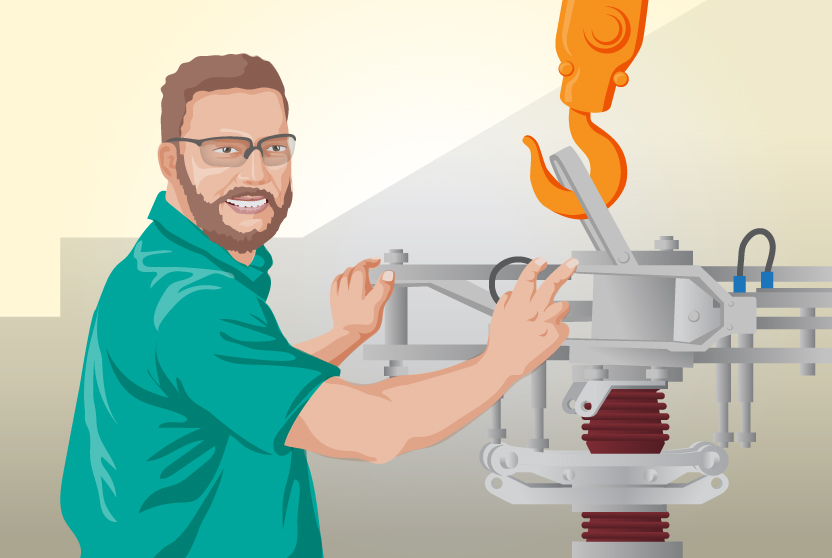Zombie companies
Are you directing a zombie company? Find out the signs and how to turn your business around.
What is a Zombie Company?
A Zombie Company is a business that barely scrapes by and is always short of cash. In accounting terms it covers most of its running costs but is never able to develop a profit margin.
The problem with Zombie Companies is that they can be easily tipped over the edge into insolvency when something goes wrong. Sometimes the analogy of the boiling frog is accurate – Zombie Companies move from one crisis to another without seeing that their financial position is getting worse – until they are finally boiled (financially). Insolvency is a position where the company is unable to pay its debts regardless of whether there is an uptick in sales forecast.
Zombie companies – explained
Firm Principal Ben Sewell takes you through an explanation of zombie companies
Large corporates (too big to fail) that become Zombie Companies often get bailed out – but this isn’t available to small-to-medium sized enterprises (SMEs). SMEs are allowed to fail and this has devastating effects on the lives of business owners. The Australian insolvency system is very unforgiving of company directors of SMEs and the voluntary administration procedure does not have a high chance of success unless substantial due diligence is undertaken. The Small Business Restructuring Process has had better results than voluntary administration but it should also be a last resort for Zombie Companies.
Typical SME Zombie Companies are:
- Building and construction companies: They are at the mercy of large builders and their tight cash flow means that if they underprice one job they may be pushed into insolvency
- Transport companies: They have high capital and labour expenses (including insurance) and losing one key customer can push them into insolvency
- Retail and hospitality: Currently retail businesses are under enormous pressure from online competitors and the erosion of sales margins
- Professional services: High labour costs and market competitiveness means professional service providers of all types could become price takers
- Mining services: The mines push risk down on service providers so that they bear the risk of any downturn
What pressures are the proprietors under?

Brian, 50s Specialist construction
I’ve worked for 30 years and my company has good staff and contracts but I’m being squeezed at the moment by one project that has problems. I don’t know if I’ll get through it because I’ve got a wage bill for 20 staff to meet weekly and not enough in the bank to survive while we get on top of the project problems.
Dave, 40s Technical services
My partners and I have fallen out and our business is falling apart. If we don’t sort out the dispute we’re going to have litigation and I think we’ll lose what we’ve built up over 10 years.


Kate, 50s Professional services
We’re being sued and the business can’t afford the legal fees – I think we’ll go under unless something changes. We’ve got good clients and staff but we got involved in a business venture that has completely failed now.
What mistakes do Brian, Dave and Kate typically make?
- Using expensive finance facilities such as receivables finance, caveat loans or credit cards to fund working capital shortfalls
- Failing to look properly at their corporate structure and continuing to invest sweat capital in an out-of-date structure
- Hiring the local solicitor and avoiding good quality lawyers who can develop a dependable litigation strategy
- Avoiding their accountant and bookkeeper and failing to make sure their accounting software is fully reconciled
- Putting prestige over profits by not focusing on the 20% of customers that deliver 80% of profit
- Avoiding conflict with employees by not managing by objective – trying to be mates not managers
- Working ‘in’ the business but not ‘on’ the business – failing to conduct analysis to identify the root cause of financial distress
How do we help Zombie Companies?
We help the proprietors of Zombie Companies to restructure and deal with the legal issues they face. The typical services that help proprietors get a handle of their situation are:
Analysis of the problem
- Dealing with creditors
- Representing the proprietors in ongoing litigation
- Ascertaining their financial position
- Evaluating financing and equity injection options and offers
- Considering whether a restructure is feasible
- Evaluating the risk to the personal assets of directors and proprietors
- Recovering claims owing to the company
- Discussions with stakeholders in the business
Execution of a restructure
- Finalising accounts and undertaking remedying transactions
- Cashflow forecasting
- Drafting contractual and transactional documentation
- Negotiations with creditors and documentation of outcomes
- Representation at creditor proceedings
- If necessary and appropriate, engagement as Restructuring Practitioner
How do Zombie Companies get tipped over the edge into insolvency?
- Management issues – such as a breakdown in the relationship between the owners
- Loss of important customer – important customer terminates contract or key contract is lost to a competitor
- Key project issues – a key project is faltering and draining cash flows
- Sickness – illness such as depression holds back the business owners
- Fraud – key person in the business takes business opportunities or cash
- Constraints – a key issue that the business has faced becomes mission critical
The problems that Zombie companies have are compounded by not having up-to-date financial information, insufficient working capital and creative accounting.
It’s really about people – our role is to support business owners.
Our role is to help business owners by analysing their problems and execute a business restructure or otherwise work to achieve the best possible outcome.